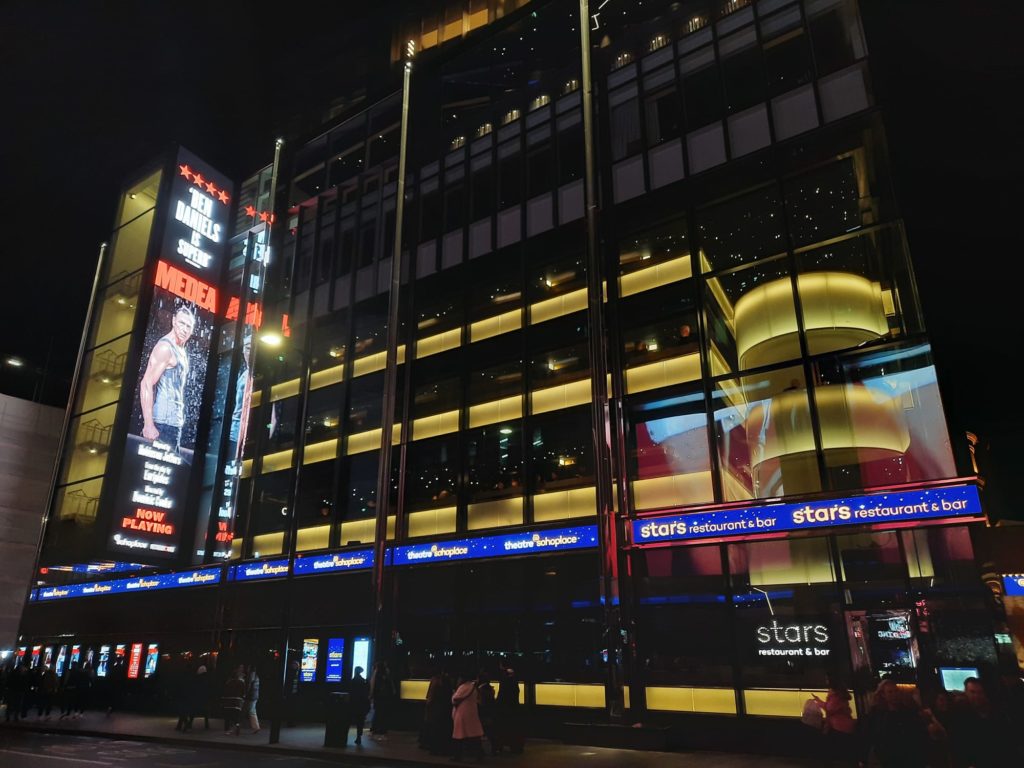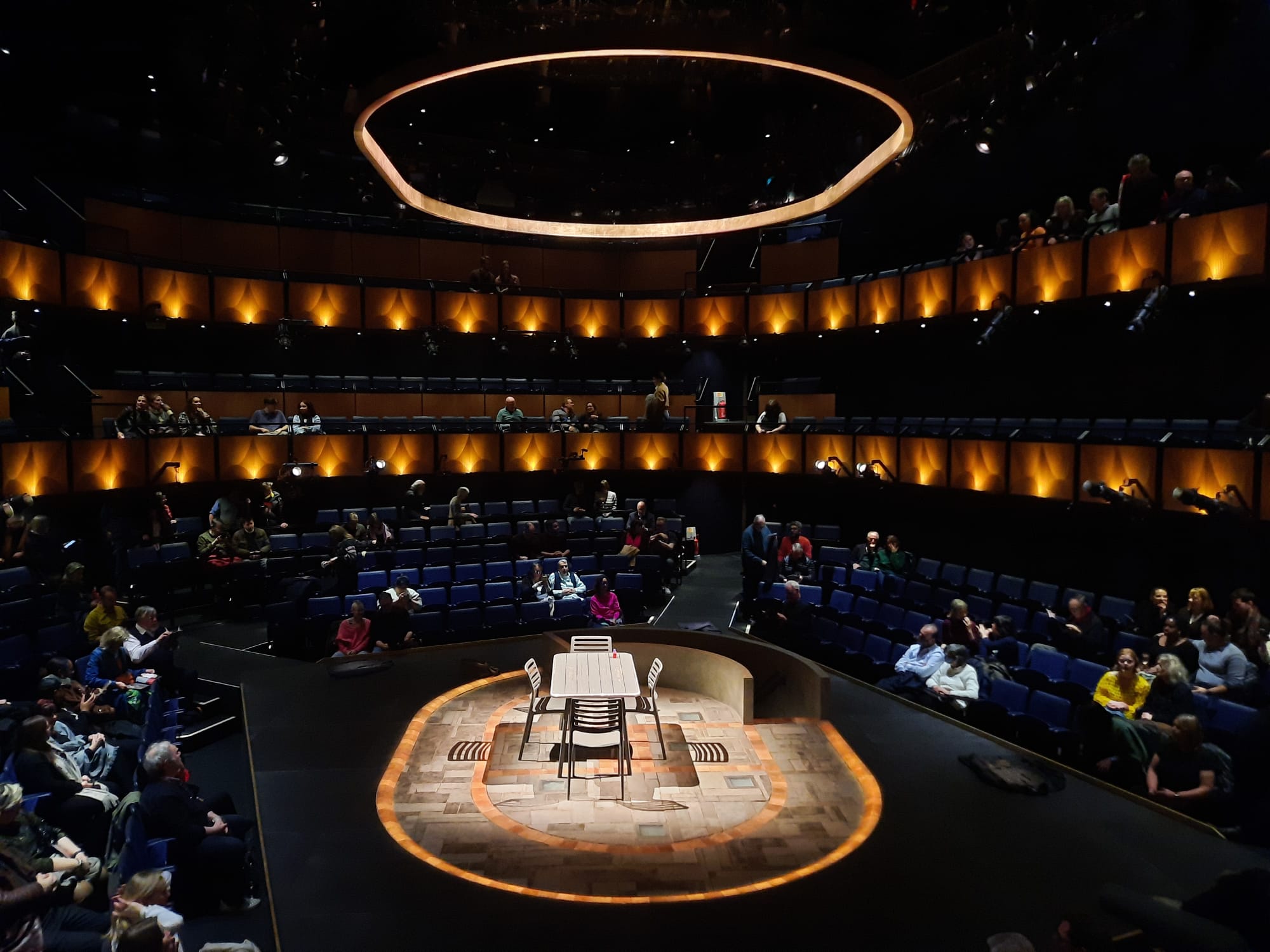Medea – Soho Place, London
Dominic Cooke’s simple take on Robinson Jeffers’ version of Medea gives plenty of space for devastating performances, especially from Sophie Okonedo in the lead role.

Medea
That a story that goes at least as far back as Euripides in 431BCE continues to resonate with us today tells us something about human nature. About suffering and vengeance. About how society treats transgressive women. Those Ancient Greek dramatists, they knew a thing or two. Less so audiences, apparently: Medea and the other works it was presented with only took third prize at their debut festival. Perhaps the story was a little much for an unsuspecting public.
The key to Medea’s enduring success is surely the simplicity of its themes. Medea, who is not Greek (Ancient Greeks were very big on who did/didn’t belong), is married to Jason, as in the Argonauts and the Golden Fleece. She burned all her bridges in her homeland to help him on his quest because she was in love. Some years (and children) later, things are not so rosy any more. Jason has spurned Medea in favour of a more advantageous match with the daughter of Creon (yes, that guy from Antigone). And Medea is to be banished. Alone and without options, the vengeance she ultimately takes on Jason and others is terrible, bloody and violent.
The version used in this production, in one of London’s newest theatres, Soho Place, is by Robinson Jeffers. An American poet, his adaptation was a Broadway hit in the 1940s. It feels right for this interpretation: modern but not overly so, and almost Shakespearean in its treatment of language. Dominic Cooke, directing, allows the story to take centre stage without too much artifice (aside from some on-stage rain at the end, very popular at the moment).
Hell Hath No Fury, Etc.
The performances by the two leads are absolutely key to the success of this production. First and foremost, Sophie Okonedo as Medea. It is such a heinous act, to kill one’s children as an act of vengeance. What stood out for me in Okonedo’s performance was the control. We understand her predicament, her lack of options. Her burning hatred for the man who abandoned her. And yet there is still a moment when she chooses violence, chooses vengeance over, for instance, the safety of her children. Okonedo as Medea is incandescent with righteous anger, yet the audience is always aware of the conscious choice at the heart of her story. It’s a brilliant performance.
Ben Daniels, who we last saw in The Normal Heart when he had me sobbing into my facemask, plays all of the male characters. Here is the stylised touch which elevates the production out of safe choices. Daniels spends the majority of the play stalking the perimeter of an internal courtyard in slow motion, his muscles taut and motions deliberate. By donning a jacket or rolling up his sleeves he becomes the cruel Jason, or haughty Creon. The unexpectedly camp Aegeus is a nice moment which relieves the mounting tension. His anguish as Jason, having witnessed the horrific death of his new bride and realising his children are also gone, is haunting. I would imagine it’s a role Daniels relishes, a real opportunity to show off his range. I think he’s now on my list of actors to go and see at any opportunity.
Something Old, Something New
The choices complementing these two inspired bits of casting are interesting. Which I don’t mean ironically, I genuinely found it an interesting way to straddle old and new. The set (design by Vicki Mortimer) confused me at first: it opens with outdoor furniture which is cleared away and never returns. I later realised this is to situate it for us as a domestic courtyard: otherwise it’s so clean there are no signifiers. The dress is modern but understated. There’s that rain at the end, which maybe isn’t necessary but is impressive.
Lastly there is the chorus/the Women of Corinth. As ever in Greek plays, they provide commentary and often voice what the audience is thinking. Only this time, they are literally imbedded within the audience. When Medea accuses them of being there to see her suffering, it places us too in the role of voyeurs. Are we not, after all, there to see Medea’s pain and bloody vengeance? This treatment of the chorus wasn’t to the taste of all of my theatre-going party, but I quite liked this unexpected blurring of boundaries.
All in all I found this a good introduction to Soho Place. The theatre is conveniently located by the redeveloped Tottenham Court Road. And is built in the round with good sight lines from every angle. The flow through the rest of the building is not nearly as good, but maybe you can’t have everything. And a little queueing to get out shouldn’t stop you from booking to see Medea. It’s the best take on a Greek classic I’ve seen recently, with knock-out performances.
Salterton Arts Review’s rating: 4/5
Medea on until 22 April 2023
If you see this after your page is loaded completely, leafletJS files are missing.

